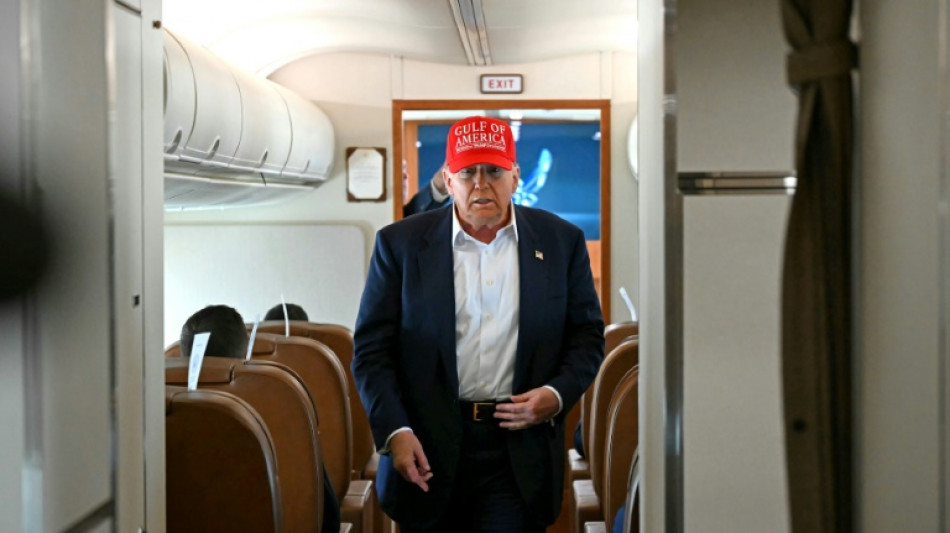
-
 Arsenal could hijack Spurs' bid for Palace star Eze - reports
Arsenal could hijack Spurs' bid for Palace star Eze - reports
-
Namibian Shalulile equals South African scoring record

-
 PlayStation prices rise as US tariffs bite
PlayStation prices rise as US tariffs bite
-
Games publisher kepler on cloud nine after smash hits

-
 Thirteen arrested over murders of Mexico City officials
Thirteen arrested over murders of Mexico City officials
-
Seville storms past Lyles for Lausanne 100m win

-
 India test-fires nuclear-capable ballistic missile
India test-fires nuclear-capable ballistic missile
-
Google unveils latest Pixel phones packed with AI
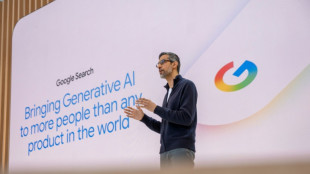
-
 Brazil records 65 percent drop in Amazon area burned by fire
Brazil records 65 percent drop in Amazon area burned by fire
-
Threat from massive western Canada wildfire eases

-
 England women's rugby coach Mitchell says World Cup favourites' tag 'irrelevant'
England women's rugby coach Mitchell says World Cup favourites' tag 'irrelevant'
-
US ramps up attack on international court over Israel

-
 Palace transfer targets Eze and Guehi to start in European tie
Palace transfer targets Eze and Guehi to start in European tie
-
North Carolina coasts prepare for flooding as Erin churns offshore

-
 India test-fires ballistic missile ahead of US tariff hike
India test-fires ballistic missile ahead of US tariff hike
-
Antarctic climate shifts threaten 'catastrophic' impacts globally

-
 Tall ships sail into Amsterdam for giant maritime festival
Tall ships sail into Amsterdam for giant maritime festival
-
Trump raises pressure on central bank, calls for Fed governor to resign

-
 Woods to head PGA Tour committee to overhaul golf
Woods to head PGA Tour committee to overhaul golf
-
Google packs new Pixel phones with AI

-
 How Europe tried to speak Trump
How Europe tried to speak Trump
-
Stock markets diverge awaiting Fed signals as tech sell-off deepens

-
 Ombudsman gives Gosden another International, Derby hero Lambourn loses
Ombudsman gives Gosden another International, Derby hero Lambourn loses
-
Eurovision returns to Vienna, 11 years after Conchita Wurst triumph

-
 England expects at Women's Rugby World Cup as hosts name strong side for opener
England expects at Women's Rugby World Cup as hosts name strong side for opener
-
Marseille's Rabiot, Rowe up for sale after 'extremely violent' bust-up: club president

-
 Shearer accuses Isak of pouring 'flames on fire' of Newcastle row
Shearer accuses Isak of pouring 'flames on fire' of Newcastle row
-
French champagne harvest begins with 'promising' outlook

-
 England unchanged for Women's Rugby World Cup opener against the USA
England unchanged for Women's Rugby World Cup opener against the USA
-
Stock markets diverge as traders eye US rate signals
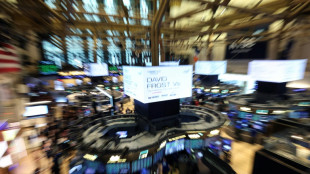
-
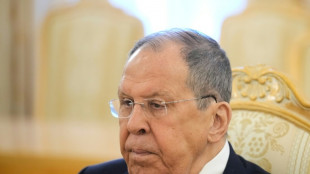 Russia says must be part of Ukraine security guarantees talks
Russia says must be part of Ukraine security guarantees talks
-
Historic Swedish church arrives at new home after two-day journey

-
 Winds complicate wildfire battle in Spain
Winds complicate wildfire battle in Spain
-
Nestle unveils method to boost cocoa yields as climate change hits

-
 UK set for more legal challenges over migrant hotels
UK set for more legal challenges over migrant hotels
-
Russia says discussing Ukraine security guarantees without Moscow 'road to nowhere'
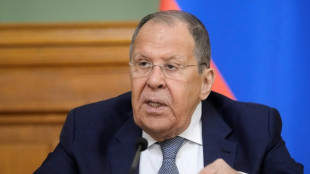
-
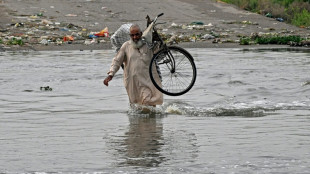 Torrential Pakistan monsoon rains kill more than 20
Torrential Pakistan monsoon rains kill more than 20
-
Record number of mosquito-borne disease outbreaks in Europe: health agency
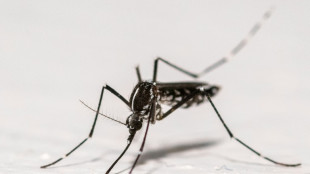
-
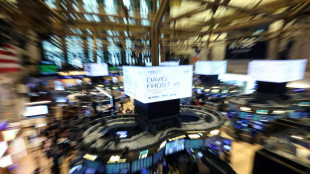 Stock markets diverge after Wall Street tech sell-off
Stock markets diverge after Wall Street tech sell-off
-
Chinese troops swelter through rehearsal for major military parade

-
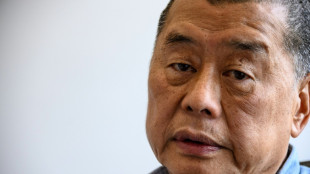 Defence begins closing arguments in Hong Kong trial of Jimmy Lai
Defence begins closing arguments in Hong Kong trial of Jimmy Lai
-
World champions Springboks to play Japan at Wembley

-
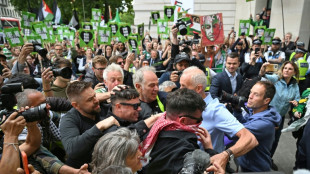 Kneecap rapper in court on terrorism charge over Hezbollah flag
Kneecap rapper in court on terrorism charge over Hezbollah flag
-
Israel approves plan to conquer Gaza City, calls up reservists

-
 Oasis star Noel Gallagher piles praise on 'amazing' brother Liam
Oasis star Noel Gallagher piles praise on 'amazing' brother Liam
-
German minister says China's 'assertiveness' threatens European interests
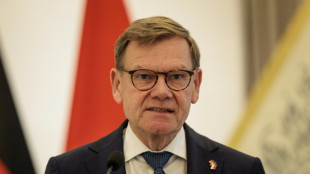
-
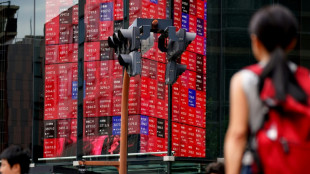 Markets waver as Japan exports show tariff strain
Markets waver as Japan exports show tariff strain
-
Afghanistan bus crash death toll rises to 78

-
 Historic Swedish church inches closer to new home
Historic Swedish church inches closer to new home
-
Asian markets waver as Japan exports show tariff strain
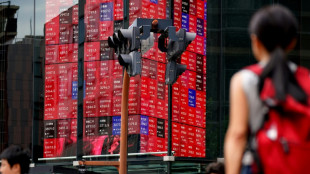

Deal or no deal: What happens with Trump's July tariff deadline?
A week before US President Donald Trump reimposes steep tariffs on dozens of economies, including the EU and Japan, many are still scrambling to reach a deal that would protect them from the worst.
The tariffs taking effect July 9 are part of a package Trump imposed in April citing a lack of "reciprocity" in trading ties.
He slapped a 10 percent levy on most partners, with higher customized rates to kick in later in countries the United States has major trade deficits with.
But these were halted until July to allow room for negotiations.
Analysts expect countries will encounter one of three outcomes: They could reach a framework for an agreement; receive an extended pause on higher tariffs; or see levies surge.
- 'Framework' deals -
"There will be a group of deals that we will land before July 9," said Treasury Secretary Scott Bessent last Friday on CNBC.
Policymakers have not named countries in this group, although Bessent maintains that Washington has been focused on striking deals with about 18 key partners.
"Vietnam, India and Taiwan remain promising candidates for a deal," Asia Society Policy Institute (ASPI) vice president Wendy Cutler told AFP.
Without a deal, Vietnam's "reciprocal tariff" rises from the baseline of 10 percent to 46 percent, India's to 26 percent and Taiwan's to 32 percent.
Josh Lipsky, international economics chair at the Atlantic Council, cited Indian negotiators' extension of their US trip recently in noting that it "seems like a frontrunner."
"Japan was in that category, but things have set back a little," Lipsky said, referring to Trump's criticism Monday over what the president called Japan's reluctance to accept US rice exports.
The deals, however, will unlikely be full-fledged trade pacts, analysts said, citing complexities in negotiating such agreements.
Since April, Washington has only announced a pact with Britain and a deal to temporarily lower tit-for-tat duties with China.
- Extended pause -
Bessent has also said that countries "negotiating in good faith" can have their tariffs remain at the 10 percent baseline.
But extensions of the pause on higher rates would depend on Trump, he added.
"With a new government, (South) Korea looks well positioned to secure an extension," Cutler of ASPI said.
Lipsky expects many countries to fall into this bucket, receiving an extended halt on higher tariffs that could last until Labor Day, which falls on September 1.
Bessent earlier said that Washington could wrap up its agenda for trade deals by Labor Day, a signal that more agreements could be concluded but with talks likely to extend past July.
- Tariff reimposition -
For countries that the United States finds "recalcitrant," however, tariffs could spring back to the higher levels Trump previously announced, Bessent has warned.
These range from 11 percent to 50 percent.
Cutler warned that "Japan's refusal to open its rice market, coupled with the US resistance to lowering automotive tariffs, may lead to the reimposition of Japan's 24 percent reciprocal tariff."
Trump himself said Tuesday that a trade deal was unlikely with Japan and the country could pay a tariff of "30 percent, 35 percent, or whatever the number is that we determine."
Lipsky believes the European Union is at risk of having tariffs snap back to steeper levels too -- to the 20 percent unveiled in April or the 50 percent Trump more recently threatened.
An area of tension could be Europe's approach to digital regulation.
Trump recently said he would terminate trade talks with Canada -- which is not impacted by the July 9 deadline -- in retaliation for the country's digital services tax, which Ottawa eventually said it would rescind.
This week, EU trade chief Maros Sefcovic is in Washington in a push to seal a trade deal, with the EU commission having received early drafts of proposals that officials are working on.
O.Mousa--SF-PST
